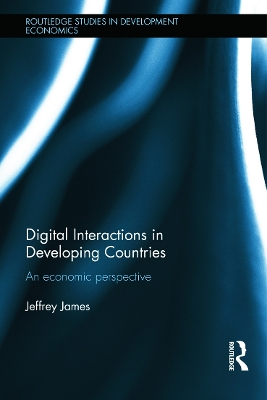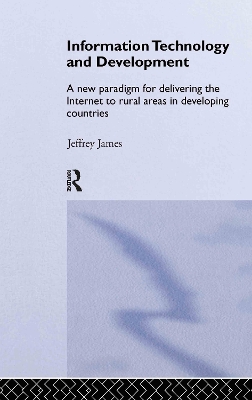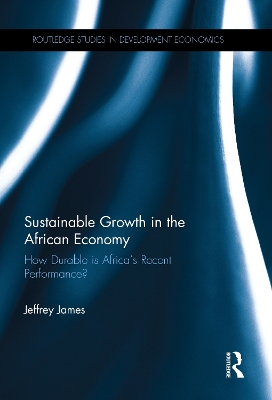Routledge Studies in Development Economics
3 total works
Jeffrey James is one of the relatively few academics to have systematically taken on the topic of IT and development. In this timely book he undertakes a methodological critique of prominent topics in the debate.
Challenging the existing literature by international and governmental institutions, the book looks not only at the digital divide but also at issues such as digital preparedness, leapfrogging and low-cost computers. James also raises important issues which have been largely neglected in the literature, such as the implications for poverty in developing countries and the macroeconomics of mobile phones.
The book argues that benefits from IT are captured in a different form in developing as opposed to developed countries. In the latter, gains come from technology ownership and use, whereas in the former, benefits cannot be captured as much in this way because ownership is more limited. Interestingly, the author shows that developing countries have responded to this distinction with a series of local innovations which are often low-cost and pro-poor. This finding contradicts the widely held view that poor countries are unable to generate major innovations within their own borders.
Accessible and clearly written, this book will be of great interest to scholars of development economics and development studies, and is relevant to both policy-makers and academics.
Attempts to bring the benefits of information technology in the form of the internet to developing countries have, to date, foundered on the belief that this requires the beneficiaries to access the technology directly. As a result, the perceived huge benefits of such an enterprise have often failed to materialise.
This original contribution to the debate on developing countries and IT suggests that the benefits of the internet can be passed on via an intermediary. That is, what matters is not the internet itself, rather its ability to provide information that can be made relevant and useful locally. Intermediaries are arguably more likely to provide such information and hence more likely to promote what Amartya Sen called individual 'functionings', for example the ability to be free of illness.
Jeffrey James is an impressive servant to the discipline of development studies, here he brings together previously fragmented literatures to break new ground in internet intermediation. Information Technology and Development will interest development economists and practitioners in equal amounts.
The current growth path in sub-Saharan Africa is not following the Lewis model where labour moves from low-productivity agriculture to higher productivity manufacturing. Instead, it is moving directly to inappropriate (import and labour-saving) methods. This book seeks to show how this distorted growth process leaves out the major resource of these countries – labour – and ends up creating unstable employment and underemployment, leading to inequality and poverty. In this way it demonstrates how the entire growth process may be rendered unstable and unsustainable.
Sustainable Growth in the African Economy considers whether the relatively rapid growth of recent years can be maintained or improved upon, with a focus on the process of industrialisation. Basing itself on a well-known dual-economy model, the proposed book focuses on several major problems of industrialisation, which has long been seen as the means of structural change in an economy which begins from a low income level. The book considers how the future trajectory of sub-Saharan Africa compares to recent success stories on other continents, and explains how factors such as rapid population growth and capital and import-intensive technology in manufacturing could foreshadow future social and political problems.
This book will be essential reading to students and policymakers who are concerned with the existing pattern of African growth.


